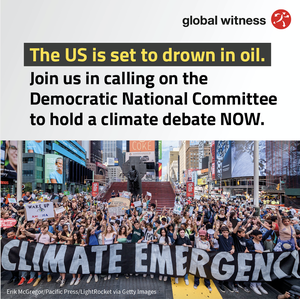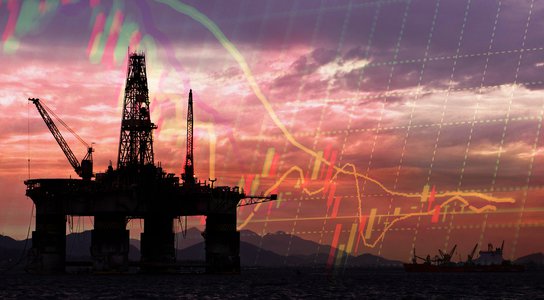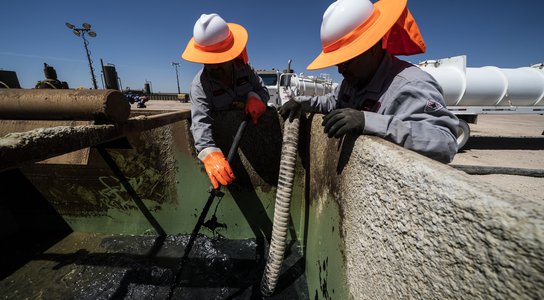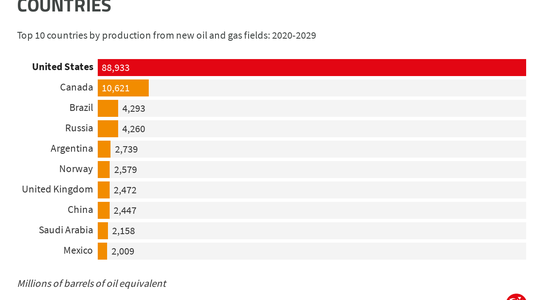With the US set to account for 61% of all new oil and gas production – a cumulative 89 billion barrels of oil - it’s time to test the presidential candidates on their commitments to climate.
Our new analysis shows that the majority of the world’s new oil and gas production will come from the United States – which is precisely why Americans deserve to hear how presidential candidates plan to tackle this.
As the Democratic National Committee (DNC), the Democratic Party’s governing body, prepares to vote on whether to hold a dedicated climate debate, this revelation is yet another reason candidates need a platform to address this: the sheer scale of new US oil and gas production risks pushing the world past the limit of 1.5C° warming.
To avoid the worst climate catastrophes, we found that global production needs to decrease by 40% over the next decade – but US oil and gas production is set to increase by 25%. New fields in the US will produce 89 billion barrels of oil over the next decade, amounting to nearly two thirds of the world’s new oil and gas. Texas alone will be responsible for over a quarter of all new production globally.

The time to act is now – before new production gets under way. It is the 2020 election, then, that will determine our path forward, with lasting consequences for generations to come.
With a crowded field, stark competition, and sky-high stakes, it is critical that voters are fully informed and able to make key distinctions. There is clearly a lot at stake for oil and gas companies: in our last report, we found that Big Oil is set to spend $5 trillion on fossil fuels we can't afford to burn. Now, we've found US companies are charging ahead, at everyone's peril.
For the first time ever, nearly every Democratic candidate has pledged not to take campaign donations from the fossil fuel industry. Without its influence, candidates can finally craft proposals that challenge the industry’s long-held grip on conversations and decisions about climate policy.
Climate will affect many other issues important to Americans – and it’s already happening.
For example, the recent influx of Guatemalan migrants fleeing crippling never-before-seen droughts will impact immigration policy. Similarly, new healthcare policies will need to accommodate sustainability, resiliency, and preparedness. We need to hear how candidates will answer questions, like those presented in the analysis, about tough issues like public land use and cabinet member accountability
Holding a climate debate is a critical opportunity to begin to understand these intersections and choose the best way to tackle them.
Right now, the
DNC has an opportunity to show Americans whether it can adapt to the
ever-changing needs of our democracy and the public demand for a climate debate
– because climate change won’t wait.


